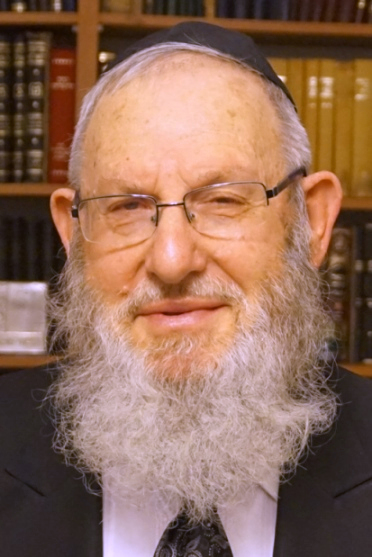Torah Lishmah
By: Rav Sharon Yust Ram Kolel Rabanut
Each morning, we recite three berakhot on the Torah:
- אשר קדשנו במצוותיו וצוונו לעסוק בדברי תורה"”
(Blessed are You God, King of the Universe, Who has sanctified us with His commandments and has commanded us to engross ourselves in the words of Torah)
- "והערב נא ה' אלוקינו את דברי תורתך בפינו ובפיות עמך בית ישראל, ונהיה אנחנו וצאצאינו וצאצאי עמך בית ישראל כולנו יודעי שמך ולומדי תורתך לשמה. ברוך אתה ה' המלמד תורה לעמו ישראל"
(Please, God, our God, sweeten the words of Your Torah in our mouth, and in the mouths of Your nation, the community of Israel. May we and our children, and the children of Your nation, the community of Israel, all of us, know Your name, and study Your Torah for its own sake. Blessed are You God, Who teaches Torah to His nation Israel)
- אשר בחר בנו מכל העמים ונתן לנו את תורתו, ברוך אתה ה' נותן התורה"”
(Who selected us from all of the nations and gave us His Torah. Blessed are You God, Giver of the Torah)
The first berakha is certainly a birkhat ha’mitzvah, as indicated by the formulation “asher kidishanu b’mitzvotav v’tzivanu” (Who has sanctified us with His commandments and has commanded us). The nature of the third berakha is also clear cut. It is obviously a birkhat ha’shevach, a blessing that praises God for choosing us as His nation, as indicated by the words “asher bachar banu” (Who selected us).[1]
The nature of the second berakha though is not entirely clear. Unlike the other two berakhot, it begins with a request, “v’haarev na” (please sweeten). Is it possible that this berakha is also a birkhat ha’shevach?
The word v’haarev derives from the Hebrew word “arev” which is used to describe a food that is sweet and delicious. Indeed, the Levush notes in the beginning of Hilkhot Birkhot Ha’Torah (OC 47:1) that a person should relate to the Torah as something of both incredible importance and something that he enjoys. Just as a person recites a blessing on physical pleasures, he is also required to recite a blessing on learning Torah.
It follows then, that this berakha might actually be considered a birkhat ha’nehenin.
Indeed, we are driven to engage in Torah study insofar as it is a mitzvah and it is incumbent upon us to study Torah. We did not seek to learn Torah because of the intellectual challenge or enjoyment, or because we are pulled to this particular field of study. “Asher kidishanu b’mitzvotav v’tzivanu” (Who has sanctified us with His commandments and has commanded us). First and foremost, Torah learning is a commandment.
Beyond the primary level of Torah study as a commandment, we add the additional element of “v’haarev na”. This level refers to Torah study that stems from a desire to enjoy, to experience the sweetness of Torah, to delight in it, to connect to it. Not only is there nothing amiss about this element of learning, but it is considered “studying Your Torah for its own sake”.
One might ask: How can these two values coexist? How can Torah learning be both lishma (for its own sake) and motivated by an intense desire to enjoy the experience of Torah study?
Rav Chaim Volozhin (Ruach Chaim 3:9) comments:
“There are several reasons that one will engage in Torah learning. Most people will learn for the money or the honor.[2] There are only a small group of exceptional individuals who will learn Torah for its own sake (lishma). Most people will learn because it is a mitzva to do so, together with one of several other possible reasons [for learning Torah]. Some will learn because they love wisdom. Even philosophers will admit that all of the wisdom in the world is insignificant in comparison to the depths of Talmudic wisdom. If a person learns in order to fulfill the mitzvot though, and he enjoys the wisdom of the Torah as he learns, this is not considered a transgression, given that his primary intention in Torah study is to put his learning into practice.”
May our desire to engage in Torah study always derive from a desire to fulfill mitzvot, and may Hashem grant us the ability to enjoy Torah study in all of its sweetness and depth.
[1] In fact, according to the Levush, one should focus on ma’amad Har Sinai (the revelation at Har Sinai) when he recites this berakha.
[2] Rav Chaim writes elsewhere regarding the issue of teaching students: A person must distance himself greatly from pursuing honor, because for this reason [failure to distance themselves from the pursuit of honor] many were unsuccessful [in their attempts to teach students].
Shiur ID: 8847
Do you have a comment or question on the shiur?
Comment below and we'll join the discussion
Add your comments:

.jpg)


